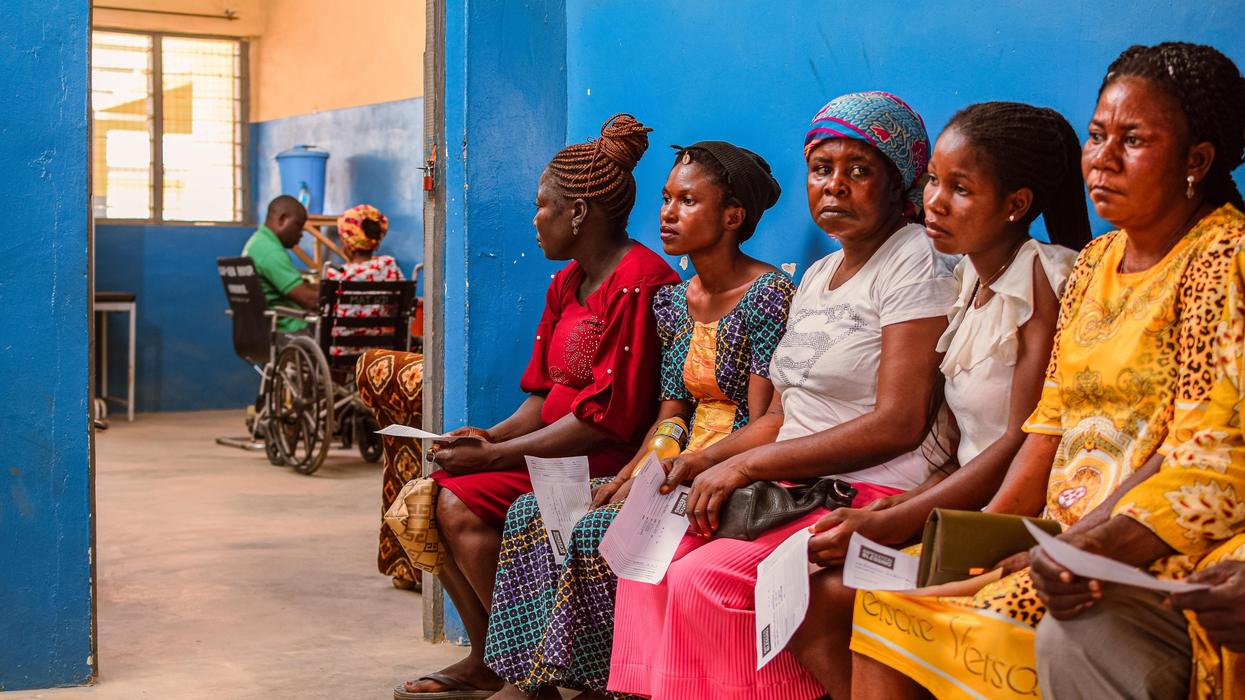On September 30, in the tailwind of Russia’s announcement that Donetsk, Luhansk, Kherson, and Zaporizhzhia would be annexed by Russia, Ukrainian President Volodymyr Zelensky issued a renewed plea for Ukrainian membership in NATO.
The Ukrainian president made his case for membership by pointing out that “de facto, we have already made our way to NATO.” With that statement, he lifted up Russia’s claim that it is “now in a direct war with the U.S.” or, as Putin said on September 21, that Russia is fighting "the entire Western military machine."
In other words, Zelensky’s request has further fed into Russian fears that Ukraine has already become a Western vassal. For Ukraine and its allies, it also highlighted, once again, that Kyiv is not a member of NATO. And, judging by the muted response from NATO leaders, that’s not going to change anytime soon.
Take NATO Secretary General Jens Stoltenberg, who repeated that the door is open to all European countries before slamming the door shut again by saying that “our focus now is on providing immediate support to Ukraine to help Ukraine defend itself against Russia’s brutal invasion.”
If that wasn’t enough, National Security Adviser Jake Sullivan then pretty much locked the door, saying Ukraine’s application “should be taken up at a different time.”
This is a reminder to the people of Ukraine — the people who are directly suffering the horrors of this war — that the U.S. and its NATO allies are more than happy to send weapons to Ukrainian soldiers but remain unwilling to send their own men and women to fight.
Biden has repeatedly insisted that the U.S. “will not fight the third world war in Ukraine,” hence the immediate reason NATO won’t entertain Zelensky’s entreaties: Article 5 could be triggered immediately in the face of continued Russian aggression against the defenses, infrastructure, and populace in Ukraine.
But, due in part to years of confused policy toward Ukraine, NATO is on that precipice today. Now that the eastern region of Ukraine has, in Russia’s eyes, joined Crimea as part of Russia, Russian officials have warned that they will regard an assault on that region as an assault on Russia — an assault that justifies the “use of all weapon systems available to us,” in the words of Vladimir Putin. And that would start the very World War III that closing the NATO door to Ukraine is meant to avoid.
The only way out is diplomacy and a negotiated settlement. Unfortunately, that way out has now been complicated by another statement from Zelensky. Following his application for accelerated ascension to NATO, the Ukrainian president invoked a decree banning negotiating with Putin. The decree “acknowledge[s] the impossibility of holding negotiations with President of the Russian Federation Vladimir Putin.” Zelensky added in a video address that “we are ready for dialogue with Russia, but with another president of Russia,” effectively ruling out peace talks.
Russia, which has also at times refused to talk, says it will talk if Zelensky changes his mind. Kremlin spokesman Dmitry Peskov said,“we’ll now be waiting for the current president to change his stance or for the arrival of the future president of Ukraine.”
That Ukraine and Russia see Ukraine as a de facto member of NATO and that NATO still refuses entry to Ukraine highlight both the dangerous peak the war has reached and the firm limits to NATO’s willingness to become involved in the war. This makes the need for a negotiated settlement more critical. There is an urgency for the U.S. to finally begin to talk to Russia, to urge Zelensky to reconsider the decree, to finally return to the last promising point of departure — April’s talks in Istanbul — and restart diplomatic talks that could finally end this horrific conflict.
















